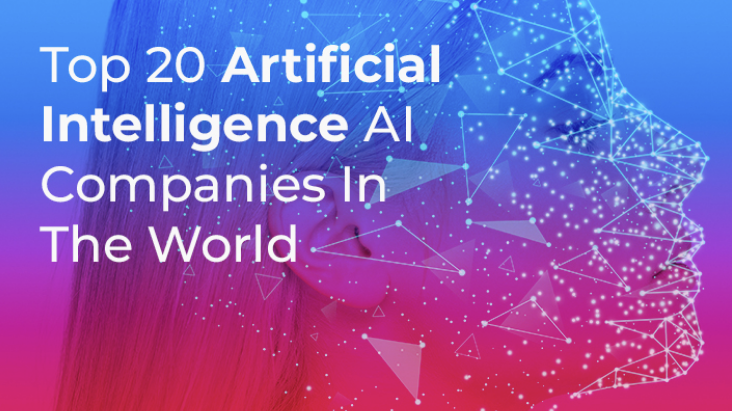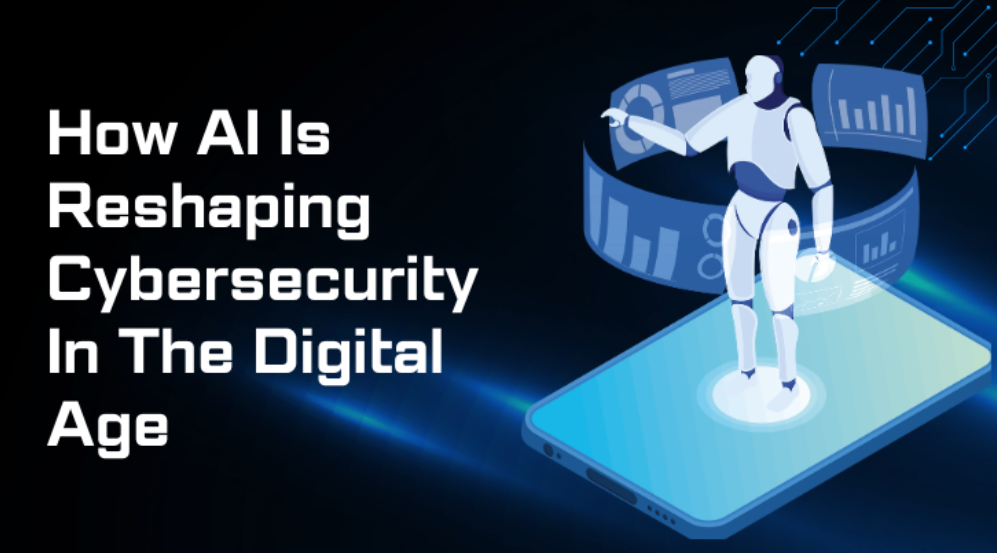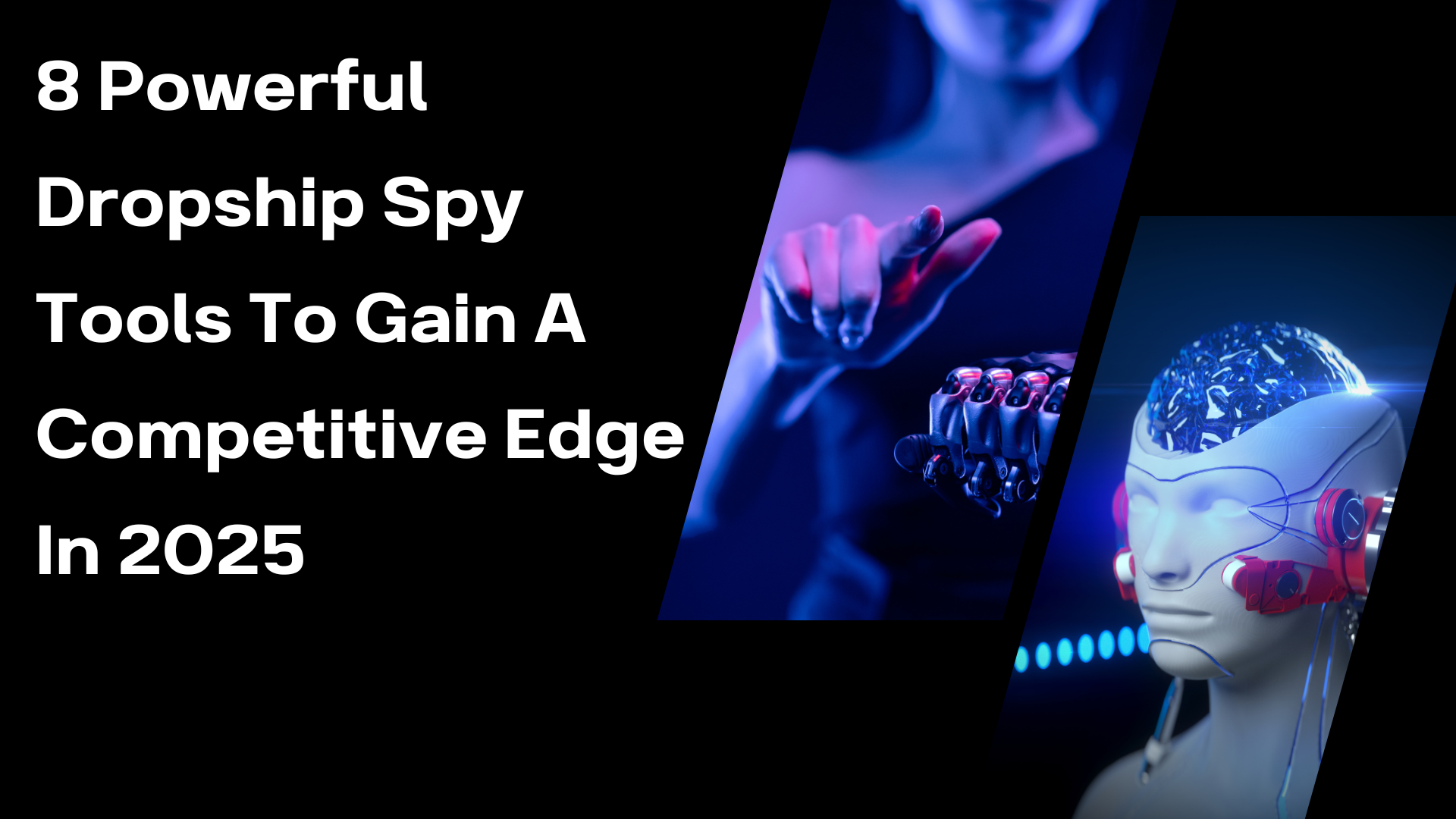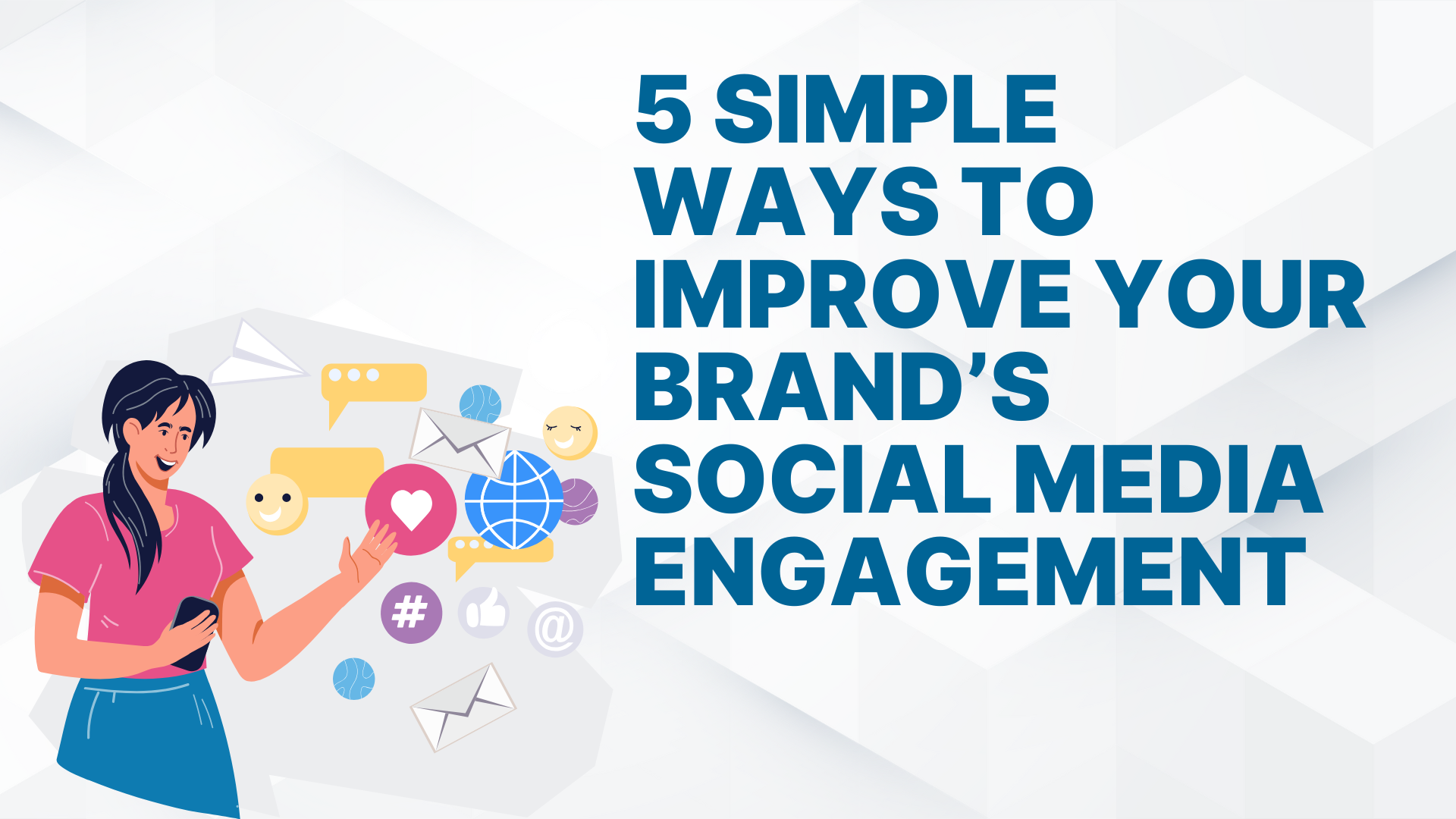The rise of Artificial Intelligence (AI) has led to groundbreaking innovations across various industries, reshaping the world as we know it. In this, we will embark on a journey to explore the top 20 AI companies in the world, witnessing their incredible contributions to AI research, applications, and hardware. These companies have cemented their positions as leaders in the global AI landscape, and we will delve into their achievements, products, and the profound impact they have on our daily lives. Join us as we unveil the powerhouses that drive the AI revolution forward and redefine the future of technology.
What are the signs of a good AI Company?
A good AI company stands out by its ability to deliver exceptional products, services, and research that leverage artificial intelligence in innovative and ethical ways. Here are some signs of a good AI company:
Expertise and Research:
A good AI company demonstrates a strong track record of expertise in AI research and development. They are at the forefront of cutting-edge technologies and are committed to pushing the boundaries of AI. They actively publish research papers, participate in AI conferences, and engage with the academic and AI community.
Talent Pool:
A good AI company attracts top AI talent and maintains a team of skilled researchers, engineers, and data scientists. The company invests in continuous learning and development for its employees to stay updated with the latest advancements in the field.
Successful AI Products:
A good AI company has a portfolio of successful AI products and services that address real-world challenges and offer tangible benefits to customers. These products showcase the company's capability to apply AI effectively.
Ethical Practices:
A good AI company is committed to ethical practices in AI development and deployment. They prioritize data privacy, transparency, and fairness in their AI algorithms and decision-making processes.
Strong Partnerships:
A good AI company collaborates with industry leaders, research institutions, and other organizations to foster innovation and share knowledge. These partnerships demonstrate the company's commitment to collective progress in the AI community.
Scalability and Performance:
The AI solutions offered by a good AI company are scalable and capable of handling large datasets efficiently. Their products demonstrate high performance and deliver accurate results.
Customer Satisfaction:
Positive customer feedback and testimonials are indicators of a good AI company. Satisfied clients are a testament to the effectiveness and reliability of the company's AI solutions.
Adaptability:
A good AI company is adaptable to the evolving needs of the market and its customers. They continuously improve their offerings based on feedback and changing trends in AI technology.
Robust Security Measures:
Security is a top priority for a good AI company. They implement robust security measures to safeguard sensitive data and protect their AI systems from potential cyber threats.
Responsible AI Practices:
A good AI company considers the societal impact of its AI applications and actively works to mitigate potential risks. They are committed to responsible AI practices that promote the greater good.
Transparency:
A good AI company is transparent about its AI models and algorithms. They provide explanations for their decisions and foster a sense of trust with their customers and stakeholders.
Proactive Support:
A good AI company offers proactive customer support to address any issues or concerns promptly. They provide training and resources to help customers make the most of their AI solutions.
In conclusion, a good AI company demonstrates expertise, ethical practices, customer satisfaction, and a commitment to innovation. They prioritize responsible AI development and work towards creating AI solutions that benefit individuals and society as a whole.
Responsibilities Of A Good AI Company
Good AI companies carry several important responsibilities to ensure the ethical, safe, and beneficial development and deployment of artificial intelligence technologies. These responsibilities include:
Ethical AI Development:
AI companies must prioritize ethical considerations throughout the entire AI development process. This includes ensuring fairness, transparency, and accountability in AI algorithms and models, and avoiding the perpetuation of biases in AI systems.
User Privacy and Data Protection:
AI companies must prioritize the privacy and security of user data. They should implement robust data protection measures and comply with relevant data privacy regulations to safeguard user information.
Responsible AI Use:
AI companies have a responsibility to ensure that their AI solutions are used for legitimate and ethical purposes. They should actively discourage any use of AI technology that may cause harm or violate human rights.
Explainable AI:
AI companies should strive to develop AI models and systems that are explainable and understandable to end-users and stakeholders. This will build trust and confidence in AI applications.
Safety and Reliability:
AI companies must ensure that their AI systems are safe, reliable, and free from critical errors. Rigorous testing and validation processes are essential to minimize the risk of unintended consequences.
Continuous Monitoring and Improvement:
AI companies should continuously monitor the performance of their AI systems and make necessary improvements to enhance accuracy, fairness, and safety over time.
Collaboration and Knowledge Sharing:
AI companies should actively collaborate with other organizations, academic institutions, and the AI community to share knowledge, best practices, and contribute to the responsible development of AI technologies.
Top 20 AI Companies In The World
1. Google (Alphabet Inc.) - Empowering the World with AI:
Google, a subsidiary of Alphabet Inc., stands tall as a pioneering AI company that has made remarkable strides in the field. Its AI-driven products and services, including Google Search and Google Assistant, have revolutionized how we access information and interact with technology. Google's open-source AI platform, TensorFlow, has empowered developers worldwide to build innovative AI applications, making it one of the top AI companies globally.
2. Microsoft - Harnessing AI for a Better Tomorrow:
Microsoft's commitment to AI research has positioned it as one of the top AI companies in the world. Its Azure AI platform offers comprehensive solutions for businesses across various domains. From AI-powered virtual assistants to chatbots, Microsoft's AI-driven tools enhance productivity and customer experiences, making it a frontrunner in the AI landscape.
3. IBM - Unleashing the Potential of Cognitive AI:
IBM's AI technology, Watson, has become synonymous with cognitive computing. With applications spanning healthcare, finance, and customer service, Watson has demonstrated its ability to analyze vast datasets and provide invaluable insights. IBM's dedication to advancing AI research and creating innovative solutions solidifies its position as one of the top AI companies globally.
IBM's Watson has redefined cognitive computing with its AI-driven insights. From healthcare to finance and customer service, Watson's applications have transformed industries, solidifying IBM's position as a leading AI company.
4. Amazon - Transforming E-commerce with AI:
As one of the top AI companies in the world, Amazon has leveraged AI algorithms to revolutionize e-commerce. Its personalized product recommendations and AI-powered voice assistant, Alexa, have reshaped how we shop and interact with technology, propelling Amazon to the forefront of AI innovation.
Amazon's AI-driven approach has disrupted e-commerce, providing customers with personalized product recommendations and streamlined shopping experiences. Alexa, Amazon's AI-powered virtual assistant, has become a household name, setting new standards for AI applications.
5. Apple - Redefining User Experiences with AI:
Apple's seamless integration of AI into its products, especially through Siri, its virtual assistant, has enhanced user experiences. The company's focus on privacy while harnessing the potential of AI underscores its position as one of the top AI companies in the world.
Apple has embraced AI through Siri, its virtual assistant, enabling users to interact with devices using natural language. Apple's dedication to user privacy while delivering AI-driven solutions has garnered praise, making it one of the top AI companies globally.
6. OpenAI - Empowering the Future with AI Research:
OpenAI, a leading AI research lab, has produced remarkable advancements, most notably with GPT-3, a groundbreaking language model. Its commitment to open-source AI research and ethical considerations sets the stage for transformative AI technologies in the future.
7. Techasoft - Powering the AI Revolution with Cutting-Edge Software:
Techasoft is a leading Artificial Intelligence Company in Bangalore and they have a team of specialist Artificial Intelligence and Machine Learning Engineers and data scientists to ease your business and transform your conventional operating system into modern and intelligent systems.
8. Baidu - Advancing AI in China and Beyond:
Baidu, a Chinese tech giant, has been at the forefront of AI research, particularly in natural language processing and computer vision. Its autonomous driving project, Apollo, exemplifies its commitment to AI applications in the automotive sector.
9. Tencent - Transforming Industries through AI:
Tencent's AI applications span various domains, including facial recognition technology and AI-powered gaming experiences. As one of the top AI companies in the world, Tencent continues to push the boundaries of AI's potential.
Tencent's AI applications have made a significant impact on the gaming industry, providing users with immersive and personalized gaming experiences. Its AI-driven innovations continue to shape the future of entertainment.
10. Salesforce - Empowering Businesses with AI-Driven Insights:
Salesforce's AI platform, Einstein, delivers personalized insights and automates tasks, enabling businesses to make data-driven decisions. As one of the best AI consultants, Salesforce empowers enterprises to enhance customer experiences through AI-driven solutions.
With data-driven insights, it helps enterprises to improve customer experiences and customer relationship management. Salesforce continues to be a driving force in AI-driven solutions as one of the top AI consultants.
11. Facebook - AI Redefining Social Media:
Facebook's extensive use of AI algorithms enhances user engagement, content moderation, and targeted advertising. Its AI-driven insights contribute to the platform's continued popularity.
12. DeepMind (a subsidiary of Alphabet Inc.) - AI Transforming Healthcare:
DeepMind's impressive AI research, particularly in reinforcement learning, has had a profound impact on various industries. Its AI-driven healthcare applications hold the promise of improving patient outcomes.
13. Intel - Powering AI with Innovative Hardware:
Intel's contributions to AI hardware have been instrumental in accelerating AI research and applications. Its AI-centric processors and neural network accelerators continue to push the boundaries of AI performance.
14. Siemens - AI in Industrial Innovation:
Siemens has embraced AI in various industrial applications, optimizing manufacturing processes and predictive maintenance. Its AI-driven solutions contribute to greater efficiency and sustainability in industries.
15. Adobe - AI Revolutionizing Creativity:
Adobe's integration of AI into its creative tools has revolutionized content creation. AI-driven features streamline workflows and enable creatives to achieve more with their artistic endeavors.
16. Samsung - Enhancing User Experiences with AI:
Samsung's AI integration in its consumer electronics and smart home solutions has redefined user experiences. Its AI-powered devices promise a more connected and intelligent future.
17. Accenture - Leading the Way as Best AI Consultants:
Accenture's expertise as one of the best AI consultants empowers businesses with data-driven insights and AI-driven solutions, fostering growth and innovation.
18. Uber - AI Driving Urban Transportation:
Uber's extensive use of AI in its ride-sharing platform has transformed urban transportation. AI algorithms optimize pricing and matching, creating seamless experiences for riders and drivers.
19. SenseTime - Advancing Computer Vision with AI:
SenseTime's expertise in computer vision and facial recognition technologies finds applications in security, surveillance, and entertainment, making it a top AI company in the world.
20. UiPath - Streamlining Workflows with AI:
As a leading RPA company, UiPath's AI-powered automation solutions have enhanced business efficiency by automating repetitive tasks, and improving productivity across various industries.
The Unstoppable Rise In AI
Artificial Intelligence (AI) has rapidly evolved over the past few decades, transforming from a theoretical concept to a tangible reality. In this interactive essay, we will take you on a journey through the growth of AI, exploring its historical milestones, the key drivers behind its expansion, and its profound impact on various aspects of our lives. Join us as we uncover the fascinating story of AI's growth and envision its limitless potential for the future.
The Genesis of AI:
The roots of AI can be traced back to the 1950s when researchers like Alan Turing and John McCarthy laid the groundwork for machine intelligence. Early AI efforts focused on problem-solving and logical reasoning, culminating in the development of the Logic Theorist and General Problem Solver programs.
The AI Winter:
Despite promising beginnings, AI faced setbacks during the 1970s and 1980s due to unrealistic expectations and limited computing power. This period, known as the AI Winter, saw a decline in AI research and funding, leading many to question the feasibility of AI.
The Rise of Machine Learning:
In the 1990s, the AI landscape began to change with the advent of machine learning algorithms. Neural networks, support vector machines, and other learning models sparked renewed interest in AI applications. This resurgence laid the foundation for the growth of AI in subsequent years.
Big Data and Cloud Computing:
The growth of AI accelerated in the 21st century, driven by the proliferation of big data and the rise of cloud computing. The availability of massive datasets and scalable computing resources enabled AI systems to learn and make predictions with unprecedented accuracy.
Deep Learning Breakthrough:
One of the most significant turning points in the growth of AI was the breakthrough in deep learning. Deep neural networks demonstrated astonishing capabilities in image recognition, natural language processing, and speech recognition, propelling AI to new heights.Interactive Element: You can take a quiz to test your knowledge of the key milestones in AI history.
AI in Everyday Life:
AI's growth has permeated our daily lives through virtual assistants like Siri and Alexa, recommendation systems on streaming platforms, and personalized ads on social media. AI's ability to understand human behavior and preferences has made it an integral part of our digital experiences.
AI in Healthcare:
AI's potential in healthcare is immense. From disease diagnosis to drug discovery and patient care, AI algorithms have shown remarkable accuracy and efficiency. AI-powered medical imaging and personalized treatment plans are transforming the healthcare industry. Interactive Element: You can explore real-life case studies of AI applications in healthcare and their impact on patient outcomes.
AI in Business:
Businesses are leveraging AI for data analysis, customer service automation, and supply chain optimization. AI-driven insights enable companies to make data-driven decisions, drive efficiency, and improve overall performance.
Ethical and Societal Challenges:
The growth of AI also raises ethical and societal challenges, such as privacy concerns, algorithmic bias, and job displacement. Addressing these issues is essential to ensuring the responsible development and deployment of AI technologies.
The Future of AI:
As AI continues to evolve, the possibilities seem limitless. Advancements in quantum computing, natural language understanding, and explainable AI promise to push the boundaries of AI capabilities even further. Interactive Element: Engage in a discussion forum to share your thoughts on the potential future applications and challenges of AI.
The growth of AI from its humble beginnings to its current transformative state is a testament to human ingenuity and perseverance. AI has made significant strides in various domains, enhancing our lives, revolutionizing industries, and sparking new possibilities. As we navigate the path ahead, it is crucial to approach AI development with responsibility, ensuring that it aligns with human values and benefits society at large. Embracing AI's potential while being mindful of its challenges will pave the way for an exciting and impactful future.
Conclusion:
The top 20 AI companies in the world have played a pivotal role in shaping the AI landscape, driving innovation, and transforming industries across the globe. Their achievements in AI research, applications, and hardware have ushered in a new era of possibilities, where AI continues to push the boundaries of human potential. As we move into the future, these companies will undoubtedly remain at the forefront of the AI revolution, shaping a world where AI-driven solutions empower and enrich our lives.

















Post Comments